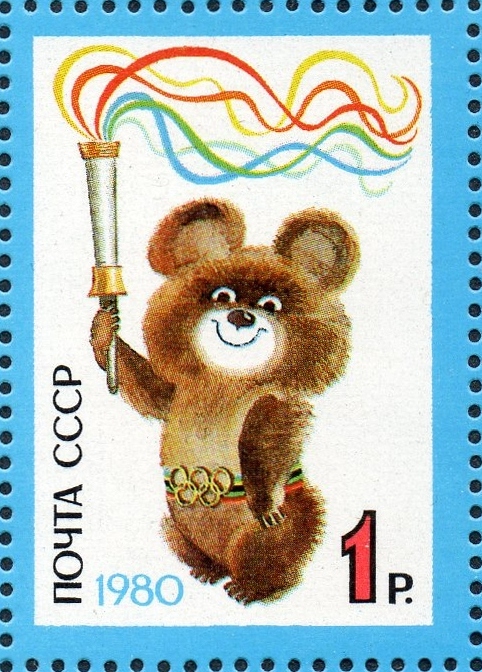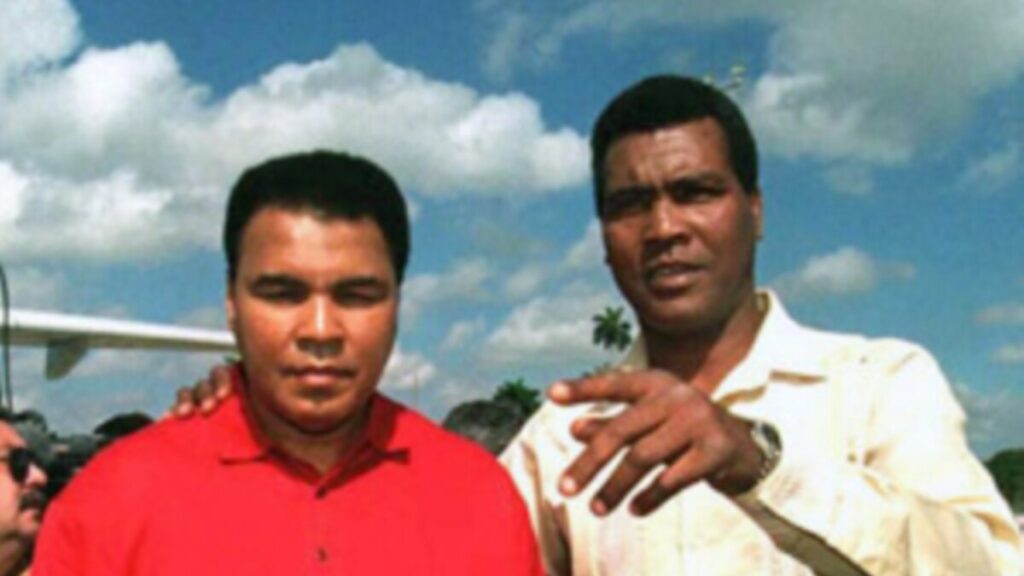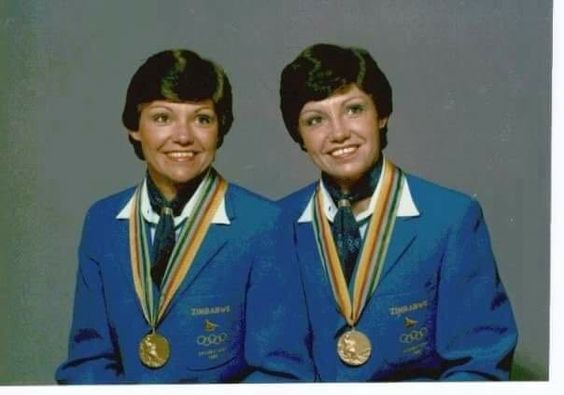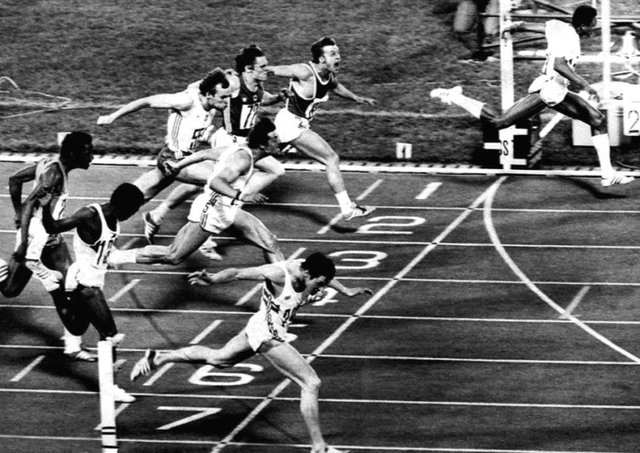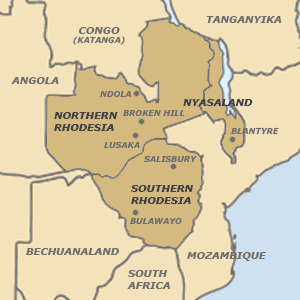The boycotts continue
It’s likely that American readers of this blog know less about the 1980 Olympic Games in Moscow than any other in the era of major contracts to televise the Games. The reason for this is, of course, the American led boycott that proved to be the largest in the history of the Olympics. In this instance, President Jimmy Carter convinced 64 other countries to join a boycott protesting the 1979 Soviet invasion of Afghanistan.
(Modern Olympic boycotts weren’t a new idea. Recall that 22 African countries boycotted the 1976 Montreal Games and, of course, four years after the Moscow Games the USSR would lead a 15 nation boycott of the Los Angeles Games in 1984. In this instance not all the Western allies joined the Americans – most notably Great Britain, Sweden, Belgium, France, Italy, the Netherlands, and Switzerland. The latter five registered their protest by choosing not to participate in the opening ceremony. A few other countries also modified their participation in some way.)
And so do the Games
With the vote to decide the host city happening barely two years after the massacre of Israeli athletes in Munich, Los Angeles and Moscow were the only two cities to submit a bid to host the Games. Moscow won the vote 39-20 (with two abstentions) marking the first time the Olympics would be held in a socialist country.
Moscow chose Misha the bear as its mascot for the Games
(Wikimedia Commons)
and you may recall that this choice prompted the 1984 Los Angeles Olympics to switch its mascot from a bear to an eagle.
The 80 National Olympic Committees (NOCs) that competed represented the fewest number since the 1956 Games in Melbourne though the 203 events represented the most at any Olympics to that date. In all, 4,064 men and 1,115 women competed.
Angola, Botswana, Cyprus, Jordan, Laos, Mozambique, and Seychelles sent athletes for the first time.
NBC, which owned the American broadcast rights aired only highlights and recaps.
Soviet gymnast Alexander Dityatin won three gold, four silver, and one bronze medal thereby becoming the only athlete to win a medal in each of the eight gymnastics events at one Olympics. Competing in 24 events (including qualifying), his lowest score was 9.800.
Super-heavyweight Teófilo Stevenson of Cuba won his third gold medal and became the first boxer to win the same division three times.
(From Radio Marti)
The gold medalists in the men’s coxless pairs rowing event, Bernd and Jorg Landvoigt of the GDR, are identical twins. The silver medalists in the men’s coxless pairs rowing event Soviets Yuri and Nikolai Pimenov are also identical twins.
These were not the only twin successes at the Games:
- Anatoly and Sergey Beloglazov from Kaliningrad were freestyle wrestlers. Anatoly won gold in the 52 kg weight and Sergey won in the 57 kg weight class.
- Sandra Chick and Sonia Robertson were members of Zimbabwe’s gold medal winning field hockey squad.
(from medium.com)
For the second time in Olympic history, the US Men’s Basketball team failed to win the gold medal. (Of course, they didn’t participate because of the boycott.) Yugoslavia won the gold medal, Italy the silver, and the USSR the bronze.
Gerd Wessig of East Germany became the first male high jumper to break the world record in this event at the Olympic Games.
Ethiopian distance runner Miruts Yifter, affectionately nicknamed “Yifter the Shifter” because of the burst of his closing kick, won double gold in the 5,000m and 10,000m races. Yifter, who had missed the Montreal games because of the African boycott was also coy about his age once telling reporters, “Men may steal my chickens; men may steal my sheep. But no man can steal my age.”
Although the winning time was a rather pedestrian 1:45.40, Steve Ovett surprised his countryman Sebastian Coe to capture gold in the 800 meters. Six days later, Coe won his gold in the 1500m run also in a rather unimpressive time of 3:38.40. Ovett finished third.
Scotsman Allan Wells and Cuban runner Silvio Leonard finished the 100m sprint with identical times
(From Scotsman.com)
but Wells was awarded the gold medal based on his quicker shoulder dip. While he has consistently denied them, allegations of doping dogged Wells throughout his career resurfacing as recently as 2015 as reported in this story in the Daily Record.
Speaking of doping, the first documented case of “blood doping” occurred at the Moscow Games when Finnish runner Kaarlo Hannes Maaninka, who won the bronze medal in the 5,000m and the silver in the 10,000m, later admitted receiving transfusions of a pint of blood before each race. The IOC didn’t declare the practice illegal until 1985.
Still speaking of doping, there was not a single positive drug test at Moscow. However, a 1989 report by a committee of the Australian Senate claimed that “there is hardly a medal winner at the Moscow Games, certainly not a gold medal winner…who is not on one sort of drug or another: usually several kinds. The Moscow Games might well have been called the Chemists’ Games” The apparent disconnect arises because the cheaters were so far ahead of the testers who had yet to find a way to detect the cornucopia of lab-made steroids athletes were taking.
The final medal count showed the USSR (80) and East Germany (47) winning 127 out of 204 available gold medals (including ties) awarded and 321 (195 and 126 respectively) of 631 total. This was the most skewed medal tally since the 1904 St. Louis Games.
Oddest? Best? I think it’s the something-est
I mentioned above the twins who were part of Zimbabwe’s gold medal winning field hockey team but there’s a bit of a deeper story there. The Moscow Games hosted the initial Olympics women’s field hockey tournament. Six teams qualified for the tournament. However, five, joined the U.S. led boycott. The teams from Great Britain, New Zealand, and the Netherlands did so based on decisions by their respective national hockey governing bodies rather than their NOC.
The Moscow Organizing Committee then sent invitations to five potential replacement nations with four – Austria, Czechoslovakia, India, and Poland accepting and Ireland declining. Zimbabwe received the last invitation.
Now, for some political context. In the 1880s, a significant stretch of land in southern Africa was a British colony called Rhodesia. In 1898, the land south of the Zambezi River, the land that would eventually become Zimbabwe was called Southern Rhodesia while the land north that became Zambia was called Northern Rhodesia. (Nyasaland eventually became Malawi.) The United Kingdom annexed Southern Rhodesia on 12 September 1923 making it a self-governing British colony.
(Wikimedia Commons BY Beneaththelandslide at English Wikipedia – The Welensky Papers: A History of the Federation of Rhodesia and Nyasaland. Durban: Graham Publishing. CC BY 2.5)
Colonies tend not to last in perpetuity and in 1964 Northern Rhodesia became Zambia. This rendered ‘Southern” an obsolete identifier and the colony became simply Rhodesia. Apartheid like policies in Rhodesia kept it banned from Olympic participation in 1968, 1972, and 1976. However, in February 1980, Rhodesia became the independent state of Zimbabwe.
After it received its invitation, the country assembled its team compromised of sixteen women all from the white minority group a week before the start of the games. This group of women was not only inexperienced playing as a team but was unaccustomed to playing on the artificial surface required by the FIH. Still, the team beat Poland and the USSR and played to draws with Czechoslovakia and India. The Zimbabweans then won the competition on the final day with a 4–1 victory over Austria and was dubbed the “Golden Girls” by the local press.
In a 2015 interview, team member Sarah English recalled, “At that time Zimbabwe didn’t have its own national anthem. They played the Olympic anthem that’s all. But there was the Zimbabwean flag and we were proud.”
